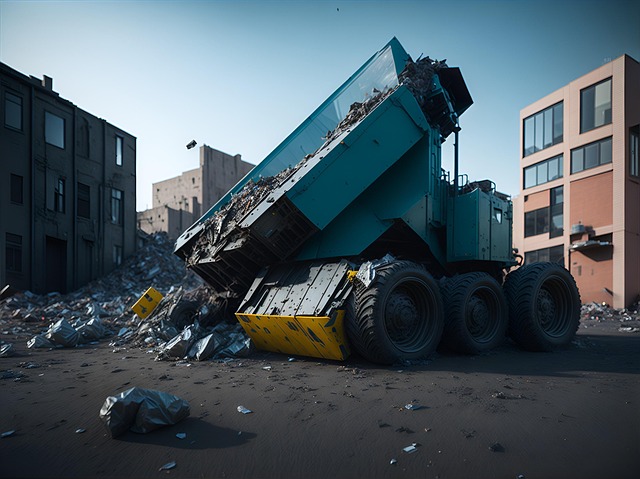Boston startups play a crucial role in sustainable e-waste management through responsible IT asset disposal practices. Partnering with certified recycling facilities ensures compliance with environmental and data security regulations in Massachusetts and New York. By adopting secure data erasure methods and participating in innovative recycling programs, startups contribute to diverting electronic waste from landfills and promoting a circular economy. Collaborations with local e-cycling centers offer cost savings and enhance corporate social responsibility initiatives. Balancing sustainability goals with operational costs is key for successful implementation of these IT asset disposal solutions in Boston and NY.
“In Boston, startups are at the forefront of innovative solutions, and e-cycling is a growing priority. This article explores how Boston’s tech community can navigate the complex landscape of electronic waste (e-waste) management while adhering to Massachusetts’ stringent legal requirements for IT asset disposal. We delve into efficient recycling processes tailored for tech businesses, the advantages and challenges of local partnerships, and the broader environmental impact of digital recycling initiatives in the region.”
- E-Waste Management: Boston's Startups' Role
- Sustainable IT Asset Disposal: Legal Requirements in MA
- Efficient Recycling Processes for Tech Businesses
- Partnering with Local E-Cycling Centers
- Benefits and Challenges of Digital Recycling Initiatives
E-Waste Management: Boston's Startups' Role

Boston’s startups have an essential role to play in the city’s efforts towards sustainable e-waste management. With the rapid advancement of technology, the surge in electronic devices has led to a significant amount of e-waste generation. Startups can contribute by adopting responsible IT asset disposal practices. This involves proper recycling of computers and other electronic equipment that reaches the end of their useful life. By partnering with specialized recycling facilities, Boston startups can ensure that their technological byproducts are disposed of in an eco-friendly manner, minimizing the environmental impact.
Encouraging computer recycling initiatives within the startup community can have a positive ripple effect. Startups can lead by example and inspire other businesses to participate in mass electronic device destruction programs. This collective effort will help reduce the amount of e-waste ending up in landfills, fostering a greener and more sustainable future for NYC and beyond.
Sustainable IT Asset Disposal: Legal Requirements in MA

In Massachusetts, including Boston, businesses engaging in IT asset disposal have legal obligations to ensure environmental protection and data security. The state’s regulations mandate proper handling and recycling of electronic waste (e-waste), which includes computers, servers, and other digital equipment. Startups in Boston should familiarize themselves with these rules to maintain compliance and avoid potential penalties.
One key aspect is to partner with certified e-cycling facilities that adhere to the state’s standards for IT asset disposal. This ensures proper data destruction, as well as the eco-friendly recycling of materials like metals, plastics, and glass found in electronic devices. Services like efficient tech garbage removal in Boston or electronic asset recovery in NYC are increasingly important, as they help businesses meet their legal duties while contributing to a sustainable future through responsible IT waste collection.
Efficient Recycling Processes for Tech Businesses

In today’s digital age, startups in Boston and beyond are recognizing the importance of efficient recycling processes for their IT assets. Effective IT asset disposal Boston NY is more than just a responsibility; it’s a strategic move to minimize environmental impact while ensuring data security. Startups can adhere to stringent IT equipment disposal regulations NY by implementing robust secure data erasure New York methods, guaranteeing that sensitive information remains protected throughout the recycling process.
By participating in innovative IT junk recycling programs, Boston-based startups can play a pivotal role in sustainable tech practices. These programs not only divert electronic waste from landfills but also enable responsible and eco-friendly disposal of end-of-life IT equipment. With proper management, these processes ensure that valuable materials are recovered and reused, fostering a circular economy while adhering to environmental standards.
Partnering with Local E-Cycling Centers

Many startups in Boston are looking for sustainable ways to manage their IT asset disposal. Partnering with local e-cycling centers is a strategic move that offers both environmental and operational benefits. These centers specialize in responsible recycling, ensuring that electronic waste (e-waste) is processed according to NY state e-waste laws and data protection act compliance standards. By collaborating with such facilities, startups can contribute to the circular economy while also enjoying cost savings on proper disposal methods recommended by data destruction companies NYC.
This partnership provides an opportunity for startups to align their practices with corporate social responsibility initiatives. It helps in reducing the environmental impact of e-waste, which is a growing concern globally. Additionally, it allows businesses to maintain a strong reputation among environmentally conscious consumers and stakeholders, positioning them as responsible corporate citizens within the community.
Benefits and Challenges of Digital Recycling Initiatives

The benefits of digital recycling initiatives are multifaceted for Boston startups. By adopting e-cycling practices, businesses can significantly reduce their environmental footprint and contribute to a more sustainable future. One of the primary advantages is the responsible disposal of IT assets, including computers, servers, and phones. Proper IT asset disposal in Massachusetts ensures that sensitive data is securely erased, aligning with compliance requirements such as the Data Protection Act in New York. This not only protects against data breaches but also prevents hazardous materials from ending up in landfills, a common issue with improper electronic waste management.
Despite these advantages, challenges exist when implementing digital recycling programs. Startups may struggle to navigate the complex IT equipment decommissioning guidelines and ensure compliance without dedicated resources or expertise. Additionally, the process can be time-consuming and logistically demanding, requiring efficient coordination to collect, transport, and recycle e-waste responsibly. Balancing these considerations is crucial for Boston startups aiming to embrace sustainable practices while managing operational costs effectively.
Boston startups have a unique opportunity to lead the way in sustainable IT asset disposal through e-cycling initiatives. By implementing efficient recycling processes and partnering with local centers, they can not only reduce their environmental impact but also contribute to a thriving circular economy. While challenges exist, especially regarding legal requirements in Massachusetts, the benefits—from cost savings to enhancing brand reputation—make e-cycling a vital strategy for tech businesses aiming to dispose of assets responsibly in Boston and beyond. Embracing these practices is a step towards a greener future for both startups and the environment.














